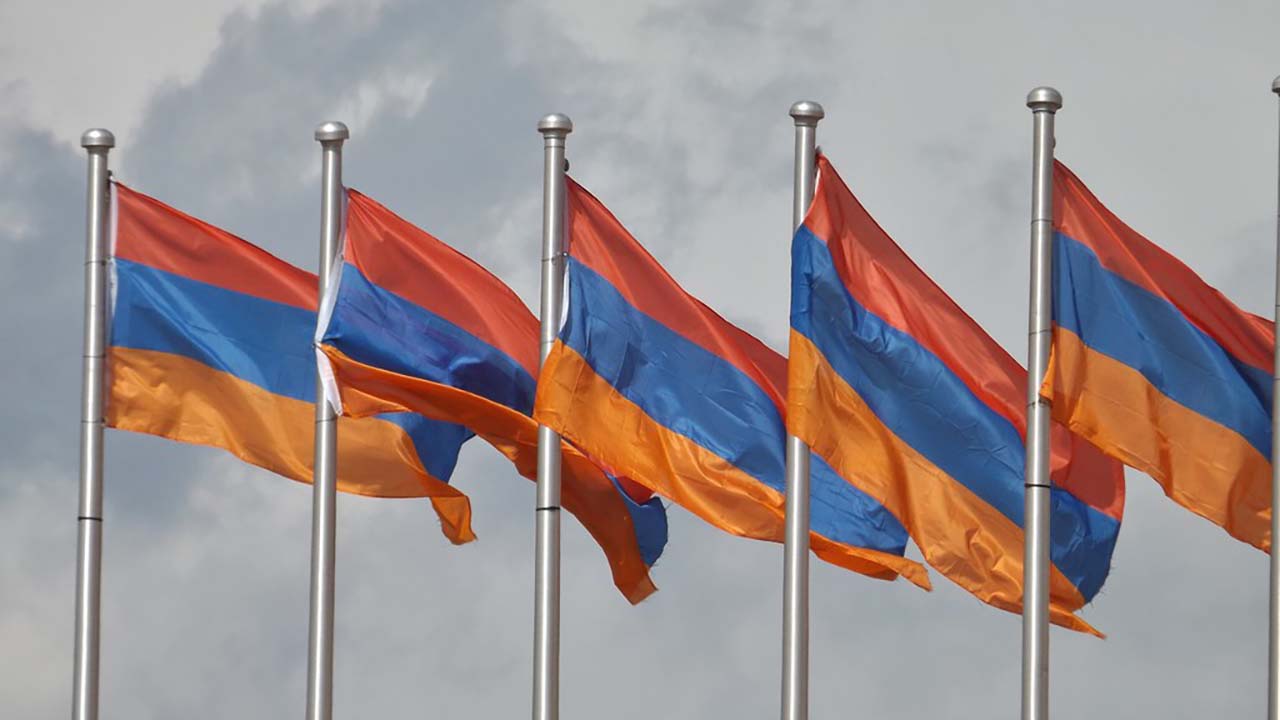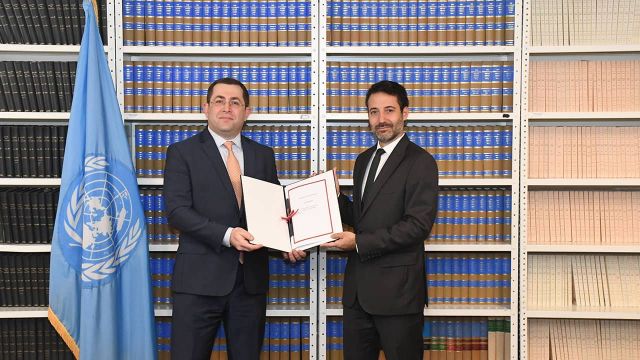
New York / The Hague / Yerevan
PGA reiterates its sincere congratulations to Armenia for officially becoming the 124th State Party to the International Criminal Court (ICC) as of 1 February 2024. This new chapter in Armenia’s history not only reinforces the system of the Rome Statute on which the Court’s mandate is based, but also safeguards accountability at the global level.
Armenia’s journey to ratification has been marked by a complex process initiated two decades ago, when the country signed the Rome Statute in 1999. After years of advocacy by civil society, including PGA, 2022 saw a renewed commitment to discussions on the Statute’s compatibility with Armenia’s Constitution. This culminated in a landmark moment when the National Assembly of Armenia adopted the law on ratifying the Rome Statute, and subsequently deposited its instrument of ratification to the United Nations on 14 November 2023.
 At times when multilateralism faces escalating challenges, we must intensify our efforts in preserving and upholding international accountability. By becoming the 124th State Party to the ICC, Armenia today proudly demonstrates its commitment to reject impunity and to abide by the Rule of Law. But our journey on this path does not end with our ratification. We, Armenian parliamentarians, must remain committed to advance the implementation of the Rome Statute domestically, continuing to promote the ratification of the treaty, and actively participating in cooperation with the Court. It is our collective aspiration that Armenia will contribute to the pursuit of universal justice on the global stage. Ms. Arusyak Julhakyan, MP (Armenia), Deputy Chair of the Standing Committee on State and Legal Affairs
At times when multilateralism faces escalating challenges, we must intensify our efforts in preserving and upholding international accountability. By becoming the 124th State Party to the ICC, Armenia today proudly demonstrates its commitment to reject impunity and to abide by the Rule of Law. But our journey on this path does not end with our ratification. We, Armenian parliamentarians, must remain committed to advance the implementation of the Rome Statute domestically, continuing to promote the ratification of the treaty, and actively participating in cooperation with the Court. It is our collective aspiration that Armenia will contribute to the pursuit of universal justice on the global stage. Ms. Arusyak Julhakyan, MP (Armenia), Deputy Chair of the Standing Committee on State and Legal AffairsHon. Arusyak Julhakyan, MP (Armenia)
Deputy Chair of the Standing Committee on State and Legal Affairs
PGA and its members worldwide have played a crucial role in promoting the universal ratification of the Rome Statute. The Secretariat of PGA notably proved its commitment during a mission to Armenia, highlighted by the participation of Ms. Frederika Schweighoferova, Director of PGA’s International Law and Human Rights Program, in the Human Rights and Accountability – a path forward for Nagorno-Karabakh Conference convened by the Center for Truth and Justice from May 3-5, 2023, in Yerevan.
Furthermore, Ms. Arusyak Julhakyan, MP (Armenia), actively engaged in the 22nd session of the Assembly of States Parties held in New York from 4-14 December 2023. Her significant involvement included a notable contribution to the side event titled “Why Universality Matters: The Importance of ratifying the Rome Statute, its amendments, and the Agreement on Privileges and Immunities,” jointly organized by PGA, Global Rights Compliance, the Coalition for the International Criminal Court and sponsored by Belgium, Switzerland, the Kingdom of Netherlands, Liechtenstein and the Republic of Korea on 8 December. On this occasion, Ms. Julhakyan shared that Armenia, despite facing tragic challenges, demonstrated its engagement to upholding international law by ratifying the Rome Statute – a pivotal instrument in preventing atrocities. As such, she expressed her resolute determination to champion global peace as a collective responsibility.
PGA reaffirms its pledge to support Armenian parliamentarians and parliamentarians worldwide in their collective endeavor toward universal justice. As Armenia takes this significant step, the international community must stand united in the pursuit of a more just and accountable world, both for today and for future generations.
Publication

Parliamentary Kit on the International Criminal Court
It is imperative that the Rome Statute be ratified universally for the successful functioning of the Court. Parliamentarians should ensure that the ICC is truly universal.
Description
Created by the Rome Statute, the International Criminal Court (ICC) is the first permanent and independent international court capable of investigating and bringing to justice individuals who commit the most serious violations of international criminal law, international humanitarian law, and human rights.
The Rome Statute defines the crimes under the Court’s jurisdiction and provides the general principles and procedures for the operation of the Court. It also outlines the cooperation obligations of its State Parties. It is imperative that the Rome Statute be ratified universally for the successful functioning of the Court. Parliamentarians should ensure that the ICC is truly universal.
PDF(s)
Additional Details
- Publication Type: Toolkit
- Author(s): Parliamentarians for Global Action




